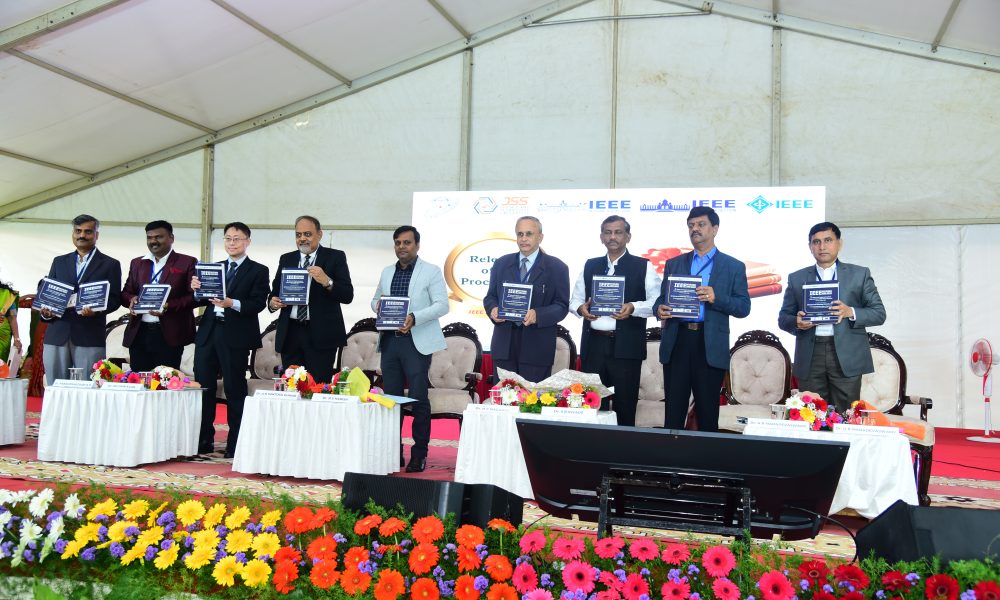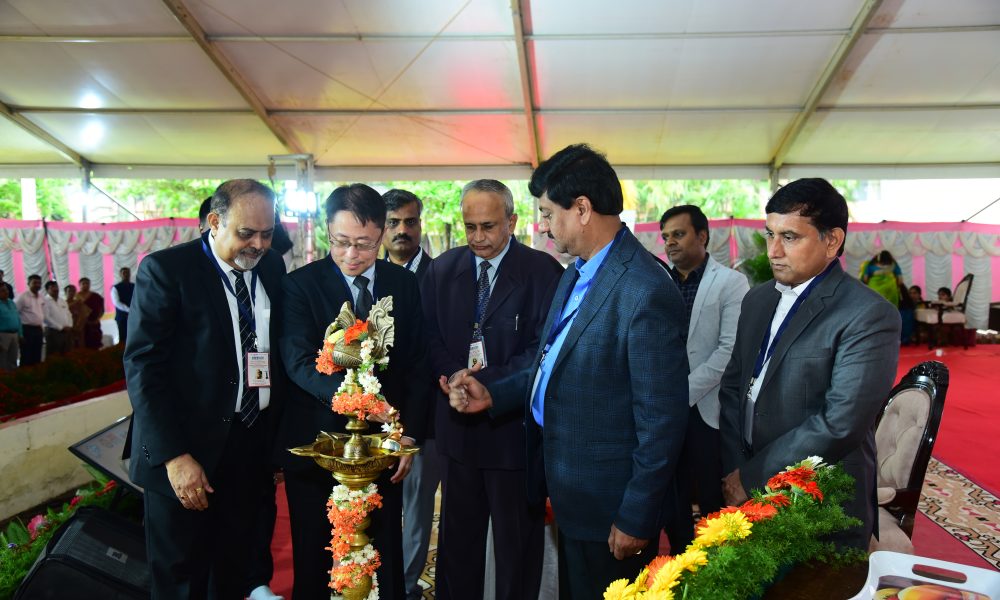The department of Electronics and Communication Engineering was established in 1968 .The Department offers an Undergraduate program in Electronics and Communication Engineering, three PG programs namely M.Tech.in industrial electronics, M.Tech.in network and internet engineering and M.Tech.in Automotive Electronics . In addition to these, it also offers M.Sc. Engineering by research & Ph. D programs which provide a platform for bright graduates and postgraduates to conduct research in state-of-the-art technologies. The department is composed of well qualified teaching and technical staff with good retention.
The Department is also a recognized centre under the Quality Improvement Program (QIP) of the Government of India. The well designed curriculum lays a strong foundation in both the analytical and technological aspects of Electronics and Communication Engineering. It also provides ample opportunities to students to work on mini-projects, develop communication skills, explore internship opportunities in industry and take part in national and international design contests like PACE, Aero-JC etc.
The B.E degree in Electronics and Communication engineering at SJCE,JSSSTU is one of the most sought after programs in the state and attracts top ranking students. It has a very good placement record and almost 100 % of the eligible students get placement in top companies with a very good package. The department has a very active IEEE student chapter which organises National level paper presentation competitions and other events such as Vacation Project Mania, Latex workshops and mini project competitions, etc.
Apart from teaching, the department also guides UG and PG students for getting Internships at renowned Industries and premier Institutes like IISc, IIT’s and NIT’s, organizes Industrial visits ,Conduct expert lectures and workshops. The department also has special labs namely Nano Dielectric lab, Visual TCAD and research lab and e-yantra lab which provides space for researchers to carry out experimental investigations and UG and PG students to implement project ideas.
Be a leader in providing globally acceptable education in electronics and communication engineering with emphasis on fundamentals-to-applications, creative-thinking, research and career-building.
M1: To provide best infrastructure and up-to-date curriculum with a conducive learning environment.
M2: To enable students to keep pace with emerging trends in Electronics and Communication Engineering.
M3: To establish strong industry participation and encourage student entrepreneurship.
M4: To promote socially relevant eco-friendly technologies and inculcate inclusive innovation activities.
PEO1: To enable the graduates to have strong Engineering fundamentals in Electronics & Communication, with adequate orientation to mathematics and basic sciences.
PEO2: To empower graduates to formulate, analyze, design and provide innovative solutions in Electronics and Communication, for real life problems.
PEO3: To ensure that graduates have adequate exposure to research and emerging technologies through industry interaction and to inculcate professional and ethical values.
PEO4: To nurture required skill sets to enable graduates to pursue successful professional career in industry, higher education, competitive exams and entrepreneurship.
PSO1: Analyze, design and provide engineering solutions in the areas of electronics circuits and systems
PSO2: Understand mathematical modeling techniques, nurture analytical and computational skills to provide engineering solutions in the areas of electronics and communication.
PSO3: Ability to address multidisciplinary research challenges and nurture entrepreneurship.
PO1: Engineering Knowledge: Apply knowledge of mathematics, science, engineering fundamentals and an engineering specialization to the solution of complex engineering problems.
PO2: Problem Analysis: Identify, formulate, research literature and analyze complex engineering problems reaching substantiated conclusions using first principles of mathematics, natural sciences and engineering sciences
PO3: Design/ Development of Solutions: Design solutions for complex engineering problems and design system components or processes that meet specified needs with appropriate consideration for public health and safety, cultural, societal and environmental considerations.
PO4: Conduct investigations of complex problems: using research based knowledge and research methods including design of experiments, analysis and interpretation of data and synthesis of information to provide valid conclusions.
PO5: Modern Tool Usage: Create, select and apply appropriate techniques, resources and modern engineering and IT tools including prediction and modeling to complex engineering activities with an understanding of the limitations
PO6: The Engineer and Society: Apply reasoning informed by contextual knowledge to assess societal, health, safety, legal and cultural issues and the consequent responsibilities relevant to professional engineering practice.
PO7: Environment and Sustainability: Understand the impact of professional engineering solutions in societal and environmental contexts and demonstrate knowledge of and need for sustainable development.
PO8: Ethics: Apply ethical principles and commit to professional ethics and responsibilities and norms of engineering practice.
PO9:Individual and Team Work: Function effectively as an individual, and as a member or leader in diverse teams and in multidisciplinary settings.
PO10: Communication: Communicate effectively on complex . . . engineering activities with the engineering community and with society at large, such as being able to comprehend and write effective reports and design documentation, make effective presentations and give and receive clear instructions.
PO11: Life-long Learning: Recognize the need for and have the preparation and ability to engage in independent and life- long learning in the broadest context of technological change.
PO12: Project Management and Finance: Demonstrate knowledge and understanding of engineering and management principles and apply these to one’s own work, as a member and leader in a team, to manage projects and in multidisciplinary environments.






